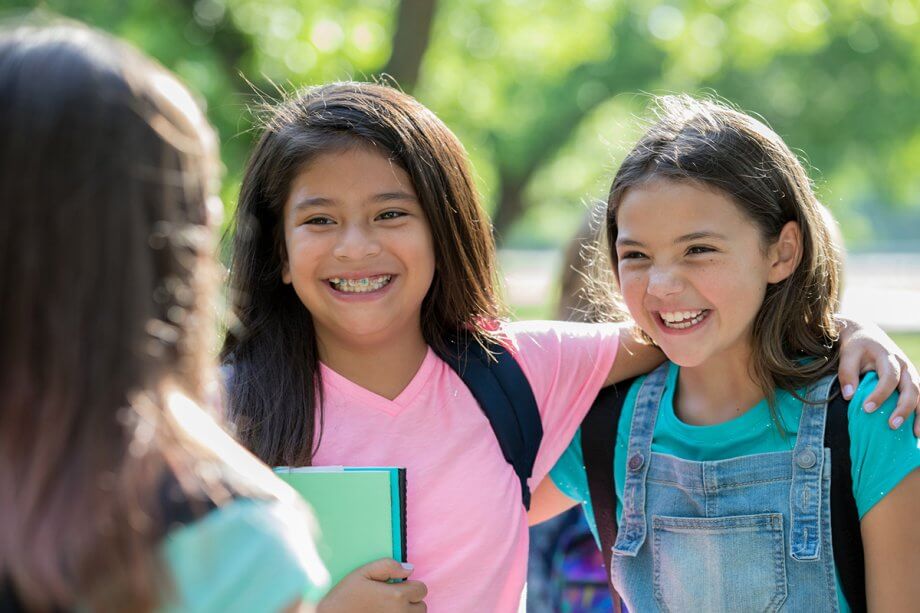The American Academy of Pediatric Dentistry (AAPD) recommends that children see the dentist once they get their first tooth or reach their first birthday. The reason? Pediatric dental care can not only reduce the likelihood of tooth decay but can also help young patients get comfortable with receiving regular oral healthcare. Early pediatric dental care can also help reduce the cost of dental care as your child grows up, by up to 40%.
What to Expect at Your Child’s First Dental Visit
A primary goal of your child’s first dental visit is getting them comfortable going to the dentist. Referred to as desensitization, during your child’s very first dental visit, the dental staff will aim to make the visit fun, entertaining, and stress-free, so that your child begins to feel comfortable in a dental office.
During this initial visit, your pediatric dentist will also conduct painless exams on your child. In addition to evaluating the health of the teeth, gums, and soft tissues of the mouth, pediatric dentists evaluate your child for proper facial development.
Before leaving your appointment, the pediatric dentist and their dental assistants will provide you with tips for properly cleaning your child’s teeth and gums. They will provide you with helpful resources for educating your child about maintaining good oral hygiene habits. Your child will also likely receive a new toothbrush, and often a special “prize” from the dentist.
Your child’s first dental visit will take less than one hour, and parents are invited to join their children during their exam and evaluation.
Tips for Helping Children Develop Good Oral Hygiene Habits
As your child’s primary teeth continue to erupt, they may wish to take ownership of their oral hygiene. Some children may want to take responsibility for brushing their own teeth as young as five, while others may need help longer. Irrespective of when your child decides to begin brushing their own teeth, there are several simple things parents and guardians can do to encourage good oral hygiene habits.
- Use a toothbrush timer to ensure your child brushes for a full two minutes twice daily
- Ask your child to show you how well they can brush their teeth so that you can confirm they are using the proper technique
- Brush your teeth at the same time as your child to make it a family event
- Let them pick out their toothbrush at the store
- Let them pick out their toothpaste
- Offer rewards for good oral hygiene (stickers, 5 minutes of extra screen time, etc.)
Helping your child develop good oral hygiene habits will have a positive lifelong impact. Early preventive dental care such as fluoride treatments, and dental sealants can prevent most tooth decay in children. Be sure to see your pediatric dentist twice a year for cleanings and exams, to maintain healthy teeth and smiles.
Frequently Asked Questions about Pediatric Dentistry
When do children begin losing their baby teeth?
Children generally lose their first tooth when they are about six years old. However, if your child loses a tooth a bit earlier or later, there is no cause for concern. Continue to see your pediatric dentist every six months to maintain good oral health.
When do babies start getting teeth?
Babies can start getting teeth very young. Some may begin showing signs of teething at just 4 months old. Others may not get their first tooth until they are close to 12 months old. That’s why the AAPD recommends first visits by age 1 or when their first tooth erupts-whichever comes first.
Schedule a Pediatric Dental Appointment in Brooklyn, NY
At A&R Advanced Dental Care, Dr. Liza Idelchik is a multi-award-winning pediatric dentist. Her friendly demeanor and gentle touch help children of all ages to become comfortable with dental care. Dr. Idelchik provides comprehensive pediatric preventive, restorative, and interceptive orthodontic treatment. To book an appointment call 845-364-9400, or send us a message. To best serve busy families, weekend appointments are available.


